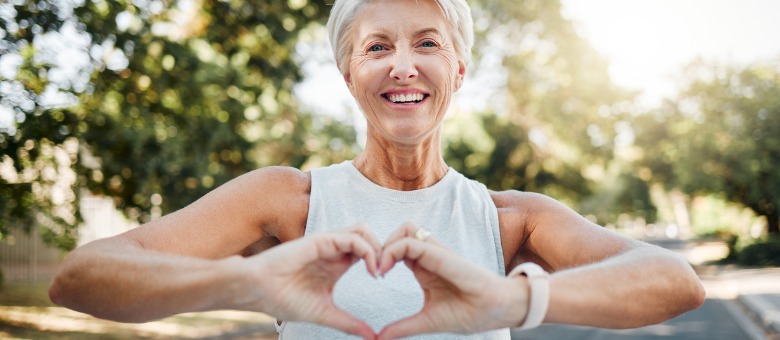
Breast Health Awareness Tips For Seniors
Breast cancer is one of the most common cancers among women in the United States, with a median age of diagnosis around 62. Although Breast Cancer Awareness Month is in October, it’s crucial to focus on breast health year-round. Understanding risks and taking preventive steps can make a difference at any time of the year.
Breast Health Concerns For Seniors
Age is one of the most common risk factors for breast cancer. The National Cancer Institute’s website shows a snapshot of estimated risk by decade, and senior women 70 and older have a 1 in 24 chance of developing breast cancer.
There are various types of breast cancer named for where they start in the breast. While there are many types, they generally have similar symptoms. Symptoms can vary among people, but things to look for include:
- A lump in the breast or armpit
- Irritation or dipping on the breast skin
- Pain or irritation of the nipple
- Discharge of the nipple
- Physical changes to the breast
- Discomfort in any part of the breast
Even if you’re older, a lump in the breast does not automatically mean you have cancer. Most lumps are benign tumors, meaning they’re not cancerous or life-threatening. While finding a lump can feel scary, it’s important to have it checked by a doctor so they can determine what it is and how to treat it.
Breast Cancer Risks
There are a few risk factors for breast cancer that you can’t control, such as age, having a family history of breast cancer, having a genetic mutation such as BRCA1 and BRCA2, and having dense breast tissue.
Other factors, called lifestyle factors, are risks that you can control. Physical inactivity, drinking alcohol, and forms of hormone replacement therapy can increase your risk of breast cancer. Women who have never had a full-term pregnancy or who have never breastfed are also at a higher risk of breast cancer.
Women are not the only people at risk for breast cancer. While it’s less common among men, men can develop cancer in the breast tissue surrounding the pectoral muscle. Signs of breast cancer in men are the same as in women.
Lowering Your Breast Cancer Risk
The best chance you have for lowering your risk for breast cancer is to decrease the risk factors that are within your control, which means putting your health first. You can also stay healthy with regular screenings and preventive treatments.
Put Your Health First
Risk factors such as physical inactivity and alcohol use can affect not only your breast health but also your overall well-being. When preventing or minimizing cancer risk, it’s important to prioritize your physical health. Find ways to move your body, eat a well-balanced diet, and limit your use of alcohol and cigarettes.
Get Regular Screenings
Mammograms are one of the primary cancer screenings for women. A mammogram is an x-ray of the breast to look for early signs of breast cancer. They may be slightly uncomfortable but relatively painless and quick to screen. Other types of screenings include a breast ultrasound or breast MRI.
You can find a full list of mammogram and breast health screening locations here.
Consider Preventative Treatment
If you have a high risk of breast cancer, your doctor may suggest a preventative treatment such as genetic counseling, medicines, or surgery.
- Genetic counseling is common for those with a family history of breast cancer. Some breast cancers are genetic, and this preventative measure can assess if you have a genetic mutation that may cause breast cancer.
- Medications, such as selective estrogen receptor modulators, may help reduce the risk of breast cancer in some women.
- Surgery may help those with very high risks of cancer. Surgery may include removing all or some of the breast tissue.
Breast health specialists in Northeast Ohio can help you navigate screenings and preventive measures.
How Visiting Angels Can Help
Navigating life with breast cancer is not an easy feat, and it’s not something you’re expected to do alone. For those seniors needing physical, mental, or emotional support while living with breast cancer, Visiting Angels Northeast Ohio is here to help.
Our team of compassionate caregivers works with seniors throughout Northeast Ohio to provide at-home assistance. Caregivers can help with light housekeeping, appointment transportation, medication reminders, mobility assistance, and companionship.
You can contact us to learn more about at-home care assistance with Visiting Angels.
